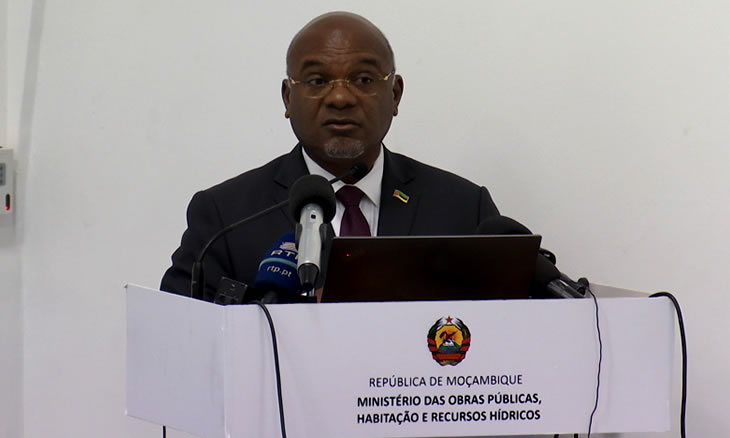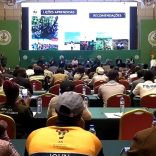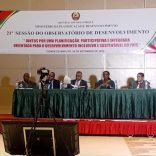Mozambique: Community management of natural resources 'increasingly important' to mitigate climate ...
Mozambique: Mesquita wants EN1 and EN7 redesigned in depth

Photo: O País
Minister of Public Works, Housing and Water Resources Carlos Mesquita advocates a reformulation of construction projects such as bridges, water infrastructure and roads, including the EN1 and EN7, alongside improved control of all processes, as a way of boosting resilience in the face of climate change.
Minister Carlos Mesquita addressing former leaders of the sector and construction experts on this matter on Monday during the opening of the first council of Public Works, Housing and Water Resources, under the theme: “For Resilient Road Structure in a Context of Climate Change”.
According to the Minister Mesquita, it is necessary to review projects already conceived, taking into account the climate situation.
This debate has been raised in the public sphere by the recent destruction of bridges, access roads and water infrastructure during the last rain and cyclone season, which affected about 8,800 km of roads, 23 bridges, 14 hydraulic passages (culverts) and three drifts [fords].
“This situation requires us to reflect on the assumptions regarding design, dimensions, construction, operation and maintenance of road and other infrastructure, taking into account the latest climatic variables, including projections for the future,” the minister said.
According to the minister, the construction of infrastructure that is more resistant to climate change involves an assessment of all sectors on how the process is managed, from the ministry to engineers, inspectors and other entities involved in public works.
“When does the issue of resilience and quality begin? Obviously, not when work begins and [the project] is being implemented. So, how do all these actors behave, from here in the ministry? How do we grant licences, permits? What inspections do we carry out?” Mesquita asked.
Among the infrastructure whose design might be revisited, Mesquita said, are National Highways Numbers 1 and 7 (EN1 and EN7) which were built before the climate change events that now occur more and more frequently.
“We need to make our infrastructure more resilient. It was necessary, for example, to review the Tica-Buzi road project, work on which began several years ago. We had to change part of the project, which was already susceptible to flooding,” the minister illustrated.
The holding of the first Council of Public Works, Housing and Water Resources, is intended to obtain subsidies from entities and individuals specialised in matters of design, construction, inspection and maintenance of roads and bridges and to discuss the challenges that the new climate reality imposes on infrastructure designed and built in the past, as well as the scientific, technological and engineering approaches as can be adopted in the design, design and construction of new road infrastructure in Mozambique.
It is also expected that the main technical and engineering factors that lead to the destruction or collapse of road infrastructure by intense rain, storms, depressions and tropical cyclones will be identified, as well as the technical-scientific measures that may contribute to improve technical and engineering solutions applied in the conception, design, construction and maintenance of roads and bridges in the context of climate resilience.
Subsidies contributing to improved economic decision-making in future investments will be sought, and legal and normative reform in the design and construction of roads and bridges in Mozambique considered.
By Inalcídio Uamusse













Leave a Reply
Be the First to Comment!
You must be logged in to post a comment.
You must be logged in to post a comment.